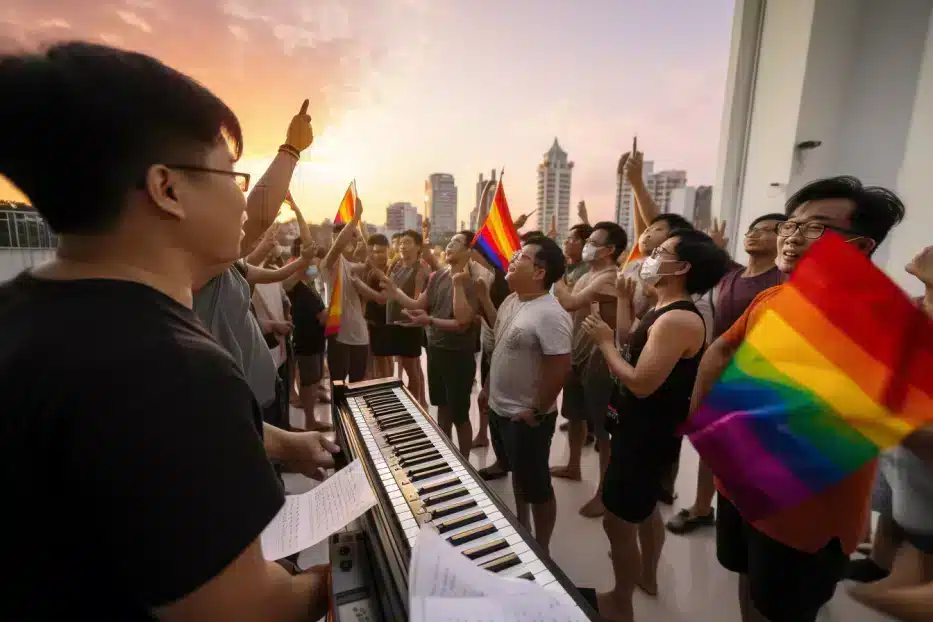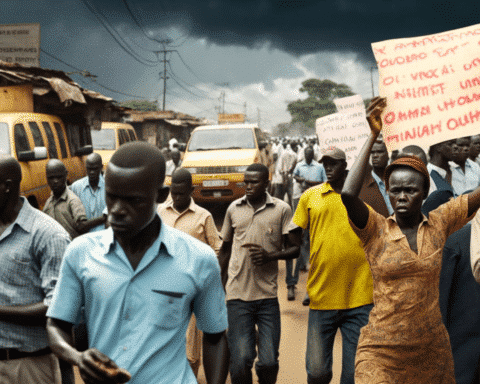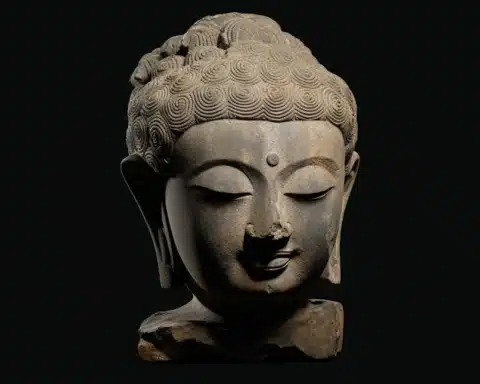In Thailand, a vibrant and hopeful atmosphere envelops the LGBTQ+ community as a pivotal moment in their fight for equality approaches. The Thai Parliament is poised to discuss a historic marriage equality bill, a significant leap towards inclusivity in a region where such progressive steps are rare. Naphat Krutthai and Rasithaya Jindasri, united by love but divided by legal recognition, embody the anticipation and optimism that pervades the community.
For Naphat, a transgender man, and Rasithaya, a woman, the prospect of legally solidifying their eight-year relationship is a dream inching closer to reality. Amidst the vibrant backdrop of Siam Square’s clothing stores, they envision their wedding, a celebration made possible by the proposed legislation. The bill aims to replace gender-specific terms in the Civil and Commercial Code with neutral language, acknowledging all forms of love.
Prime Minister Srettha Thavisin, after a recent Cabinet meeting, assured that the legislation would grant LGBTQ+ couples the same rights as heterosexual pairs. Thailand, renowned for its acceptance and inclusivity, could become Southeast Asia’s first nation to pass such a law, following the footsteps of Taiwan and Nepal in Asia.
Naphat, an advocate for trans rights, emphasizes the practical implications of this change. A marriage certificate extends beyond symbolic recognition; it offers tangible benefits like healthcare and inheritance rights, which have long eluded the LGBTQ+ community.
Despite Thailand’s global reputation and vibrant Pride celebrations, the daily realities for LGBTQ+ individuals like Nattipong Boonpuang, a fortune-teller and model, often contrast sharply with the festive images. Nattipong, a member of the Bangkok Gay Men’s Chorus, highlights the persistent challenges and misconceptions the community faces.
Vitaya Saeng-Aroon, the chorus leader, echoes this sentiment, asserting the community’s desire for equality, not privilege. Recent years have seen improvement in attitudes, but legal and societal barriers persist.
The journey towards marriage equality in Thailand has been fraught with setbacks. Previous attempts to introduce legal amendments for marriage equality or civil unions were unsuccessful. However, the current draft bill, deemed progressive by Vitaya, brings renewed hope.
In the political arena, marriage equality emerged as a significant issue in the recent general election, garnering attention from major parties. The bill enjoys broad support but must undergo several parliamentary debates and receive the King’s endorsement to become law.
The government is also considering amendments to pension fund laws to recognize all couples. Khemthong Tonsakulrungruang, a law lecturer, observes that societal attitudes toward marriage have evolved, and the legal system is merely catching up to these changes.
As Thailand stands on the cusp of a historical change, the LGBTQ+ community, represented by individuals like Naphat, Rasithaya, Nattipong, and Vitaya, looks towards a future where legal definitions do not bind love. The anticipated law change is more than just legislation; it’s a beacon of hope, a validation of identities, and a step towards a more inclusive society where every relationship is valued and legally recognized.




